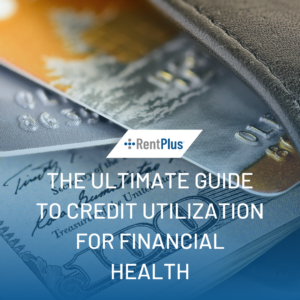Do you worry about having bad credit? Do finances stress you out every month? You might be making bad financial decisions without even knowing it. Here is a list of eight bad habits you could be making that will likely ruin your credit score:
1. Living Beyond Your Means. The fact is simple: if you spend more than you earn, you’ll soon find yourself in serious financial trouble. Someone who makes $50,000 per year and spends $40,000 is in a better financial situation than someone who makes $150,000 and spends $170,000.
Living beyond your means usually results in having to take out a loan or put money on your credit cards. If you continuously spend more money than you make each month, you’ll soon rack up a large bill that you can’t pay back. Owing large amounts on your loans and credit cards or missing payments can hurt your credit score immensely.
2. Impulsive Spending. Have you ever been shopping with your friends and seen something that was exactly what you wanted and on sale? Or have you ever gone to the gone to the grocery store for one item and come out with your arms full? While it’s good for you to spend money on yourself, impulsively buying something you didn’t budget for could really hurt your finances. You could fix this problem by adding some “fun money” to your budget and sticking to that amount. Impulsively purchasing a new handbag you can’t afford isn’t worth ruining your budget.
3. Failure to Budget. The best way to improve your financial habits is to make a budget and stick to it. Some people don’t know that they’re living beyond their means because they’re not keeping track of their expenses. If you’re not tracking your finances, you could build up a lot of credit card debt and be in some serious financial trouble before you know it. There are a lot of helpful budgeting tools to help you get started on your budgeting, like RentPlus Money.
4. Paying Your Bills Late. You should never procrastinate paying your bills. If your bills are left unpaid, you’ll likely be charged late fees and accrue interest. These are extra expenses that could have been avoided if you’d just paid your bill on time or set up payment plans. Unpaid bills could also end up at a debt collection agency and will likely hurt your credit score.
5. Not Paying Your Credit Card Debt in Full. Paying the minimum balance on your credit card is a good start. However, if you only pay the minimum each month, it’ll take a lot longer to pay your credit card off and you’ll pay more in interest fees. If you stick to your budget each month, you should be able to pay off your credit card in full or at least start making payments towards eventually paying off your credit card. Remember, if the amount you owe on your credit card is more than 20% of the available credit, it could hurt your credit score. So, keep your balance low each month.
6. Failure to Save. You should be putting money in an emergency savings account each month. Having a good savings can help you when unexpected expenses like your car breaking down or medical emergencies occur. If you don’t have a savings to fall back on you might have to take out a loan or pay the bills with your credit card, adding debt that will be hard to pay back on an already tight budget.
7. Focusing on Credit Card Rewards. Credit card companies offer very enticing rewards for using their credit cards. If you focus too much on getting the rewards, you could find yourself in a lot of debt. Is the $3,000 credit card bill worth a fancy new blender? If you use your credit card wisely and don’t spend more than you can pay off each month, you can build your credit score and earn credit card rewards at the same time.
8. Treating Credit Cards Like Free Money. Studies have shown that people are more likely to spend more and not feel as bad about it if they use a credit card instead of cash. Overspending on credit cards is the easiest way to get into debt and then you’ll end up spending your hard-earned money paying of high-interest rates. Be smart about your purchases and don’t overspend with your credit cards.
Don’t let your bad financial habits ruin your credit score and deprive you of the financial freedom you seek. Check out our FinStrong financial education program to help you learn time-proven personal financial principles that will help you make wise financial decisions.



